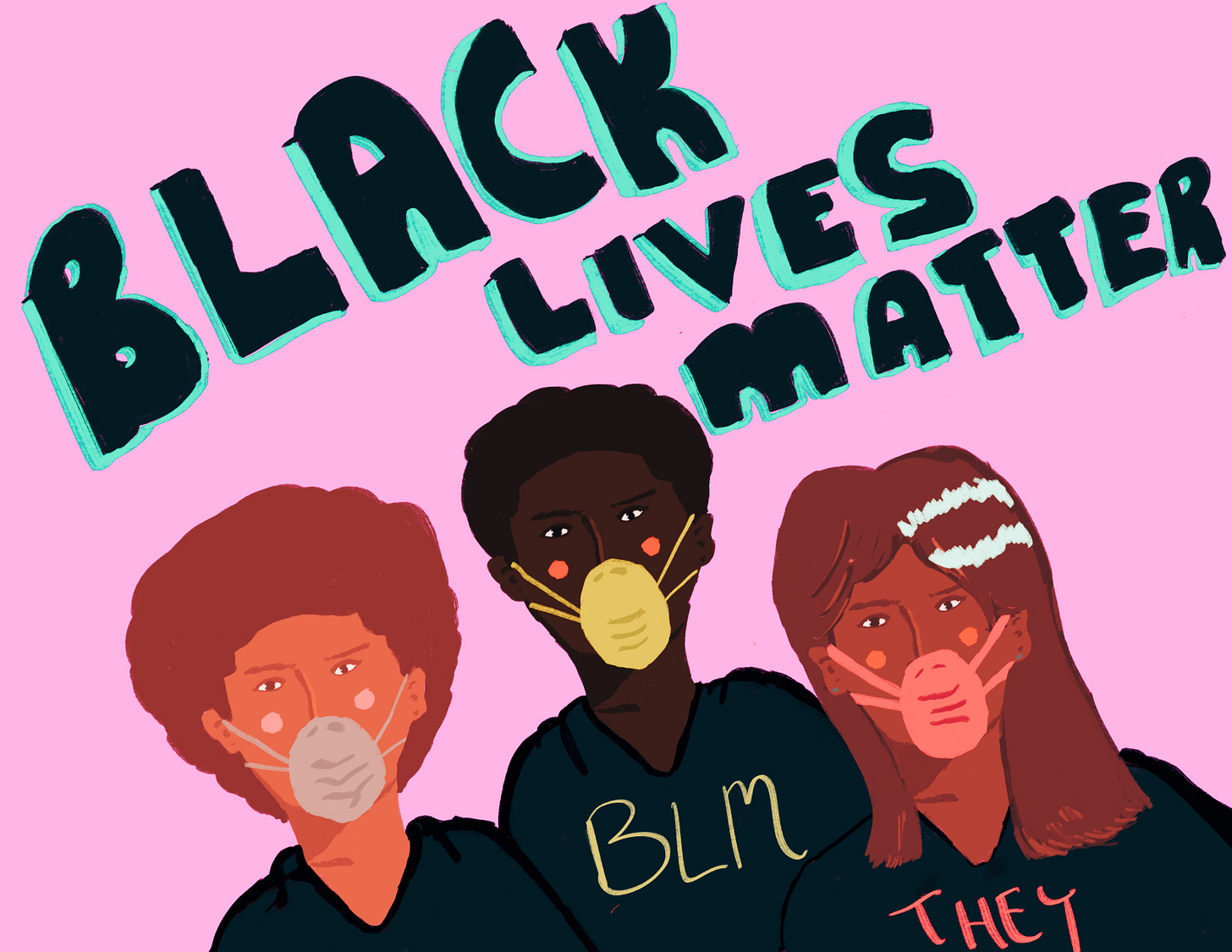
On today's episode of being black in America is exhausting, I've been thinking a lot about Nina Pop, Tony McDade, and the trans people in the past who have lost their lives with far less media coverage. For me, a good day is avoiding seeing another black life taken at the hands of the police. I thought today was one of those rare good days, but in an instant, it got disrupted when I watched the video of Iyanna Dior. I saw the people attacking her with brute force, and the only difference between this video and others were the people attacking her were black cis-gendered men. Watching this video, brought back an unspoken trauma that I've dealt with my whole life.
When I grew up, there was one phrase that always made me realize that I was different from every other black person I knew—No Homo. I would see kids who looked liked me say those words to each other casually, almost as a way to justify their lives. The difference between their blackness and mine was my blackness was in hiding, and their blackness forced me to be. I still remember the feeling of being beaten up by someone who thought I was acting gay. I remember the confusion I felt knowing that this pain was caused by someone that shared the same melanin as me, and I remember the look on a young black boys face when he said he wanted to beat the gay out of me. After that day, I trained myself to be as masculine as possible. I lowered my voice; I tried to walk without a swish; I tried everything I could to be seen as a full human being. I was trained to lock my true identity in a prison to be seen as valid in my own community.
I can't even say that the kids at school only caused the trauma because it was embedded all over my black experience. From my uncles forcing me to watch sports with them, to my cousins wrestling with me in the living room, to my father proclaiming that I hung out with my momma too much because I wanted to pursue theater instead of football. It's a trauma queer people of color often experience but never talk about because our own community causes the injury. Now, as a non-binary LGBTQ person, I still have to think twice about the spaces I enter. I still have to duck and dodge Hoteps, who use blackness as a way to uphold misogyny. I still have to choose between being my authentic self or being a target for someone whose life I would stand on the front lines to protect! The fact of the matter is queer black people have historically stood and fought against the systems of oppression that bind our brothers, so my question is if we stand for them, why are they killing us?
When we say Black Lives Matter, we need to take a more in-depth look at a society that trains black men to attack and murder black people who identify outside the traditional spectrums of masculinity. We need to determine how we've been complicit in the marginalization of queer voices in our community, and we need to understand the nuances of how white supremacy has separated us from our own for far too long. Lastly, we need to question a society that places value on the cis heteropatriarchy, and we need to realize when you deny the humanity of black queer people, you are inherently denying yourself.
Thanks for being a subscriber
Please consider donating directly to Iyanna Dior via CashApp $IyannaDIO and Nina Pop and Tony McDade here.
Remember you are more powerful than you know
Kile Atwater



